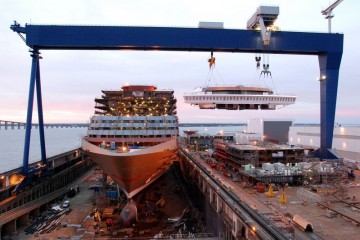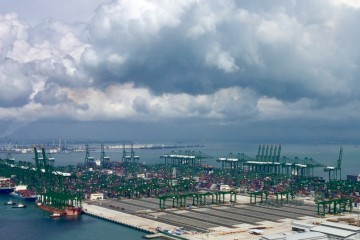Global solutions for a global industry, is one of the standard phrases in the shipping representative’s phrase book. Easy enough. No particular understanding or inspiration is needed; whatever the situation or proposal, the answer can always be the same: the global nature of shipping requires intervention at the global level. Or, slightly differently: we need a global playing field – and then the discussion is usually closed. However, things are changing: the time for smart regional intervention might have come.
The “global industry-global solutions” idea is fairly simple. Ship owners can change flag, so if a flag state imposes regulation they do not like, they can simply move to a flag state that is less bothersome and register their ship there. This is common practice, which explains why countries like Panama, Liberia and the Bahamas are among the largest shipping nations. For shipowners the question is: why be subject to regulation that does not apply to competitors that might sail under a different flag? So, the argument of the global playing field. The result of such regulation would be contrary to the intention: instead of solving undesirable effects of certain flags, it simply gives an incentive for shipowners to move to another flag. So, leakage effects.
What if the design of regional regulation would be able to avoid distortion of competition and leakage? This is not an academic question. As we are speaking, the European Parliament has supported a proposal to include shipping in the EU Emissions Trading Scheme (ETS). The proposal is smart: it gives the possibility to shipowners to go around ETS by paying a contribution to a shipping fund: 20% of this fund would be used to finance green innovations in shipping and ports. This could help to find ways to decarbonise shipping. The scheme resembles the Norwegian NOx fund that has helped to substantially reduce NOx emissions of ships in Norway and that has funded various shipping innovations, notably related to LNG-powered ships.
The EU scheme would apply to each flag, so there is a level playing field and no risk for carbon leakage. EU ports might be concerned about losing port calls to nearby ports if shipping companies would try to circumvent the scheme. This risk will in practice be limited given the costs that an additional or supplementary port call would entail. Clearance of goods in, let’s say, the Italian port of Gioia Tauro, means clearance for subsequent transport to the entire European single market. So shifting a port call to Tanger-Med for goods destined for the European market would not make much sense for shipping companies.
Reactions from the shipping world on the ETS proposal have been surprisingly predictable: the standard phrases about global level playing field and leakage effects were dusted off and used with the usual aplomb. Only too bad that the mantras do not exactly apply this time. The scheme was carefully designed to avoid distortions and leakage. Moreover, the proposal comes at a time when global schemes are not particularly imminent. The IMO has agreed to a “three-step approach”, consisting of data collection, data analysis and decision-making on possible policy measures. The third step could involve market-based mechanisms, such as emissions trading or a carbon tax, but decision-making on the first step (data collection) is not even finalised yet. In addition, the rumour has it that China has excluded the possibility of introducing market-based mechanisms for global shipping before 2025.
In the year in which shipping is promoted as “indispensable to the world” and many industry observers wonder why shipping does not have a good press, the industry could do better than give the impression of buying time by murmuring hollow phrases. If European shipowners are really so concerned about level playing field arguments, why not propose a global carbon tax for shipping to counter the proposal of the European parliament? A global solution might be better than a regional one, but rejecting a smart regional proposal without an alternative for shipping to honour the Paris climate agreement is a clear-cut recipe for bad press – and more global warming.
3 Comments
Comments are closed.




If only things were so simple…Calling Gioia Tauro, DOES NOT mean clearance for subsequent transport to the entire European single market. I am sure that you have heard of the concept of a European Single Window for customs clearance and the fact that it does not exist quite the contrary. Actually, even between the same member state you have to start over (e.g. between Hamburg and Bremerhaven). So ports are right to be worried about loss of cargo especially with a potential BREXIT.
May I also draw your attention to the fact that industry has not been resting on its laurels but actually submitted jointly (ALL industry associations) a call to MEPC for strong progress.
[…] on a way forward. Even if it would decide to include shipping in the EU-ETS, for which there is a good case, it does not seem to have the ambition or means to upscale it to a larger part of the […]
[…] to suffer? Especially if there are regional or national solutions that keep the level playing field intact, e.g. by regulating all shipping companies – irrespective of the nationality of their […]